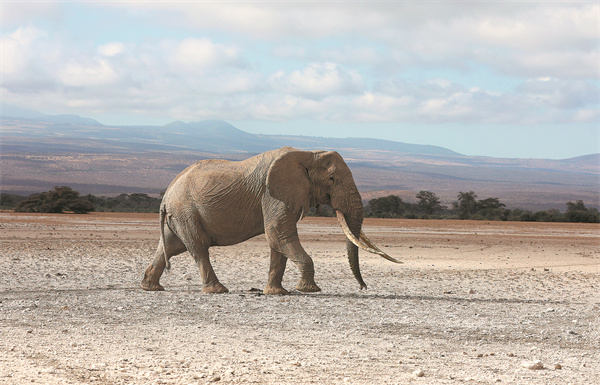

He spent three years observing an old elephant at the foot of Mount Kilimanjaro, which always wandered around a small forest by itself instead of migrating to new pastures with its herd.
"I didn't understand the reason behind this abnormal activity until I discovered the bones of another elephant in the forest. Then I realized the elephant I observe was probably tending to the remains of its mate," says Chen.
His observation has influenced his outlook on life. "Influenced by Social Darwinism, people often believe the world of wild animals is uncompromising, and use phrases like 'the law of the jungle' to refer to the crueller side of human society," says Chen.
"But through my own observations, and discussions with other scholars, I find people tend to exaggerate the competition between wild animals, but ignore their altruistic and communal behaviors," he adds.
Moreover, animals possess similar emotions, creativity, thinking methods and communication abilities to people, according to Chen.
"Through this book, I want to tell the animals' stories, guide more people to care for wild animals, enhance people's understanding of nature and promote the protection of their environment," he adds.
Having worked for Tanzania National Parks for seven years, Chen continues observing animals as a freelancer and spends nine to 10 months in Africa every year. He cooperates with local research institutes to provide videos and photos for their research, and is currently carrying out a public welfare project in Tanzania.
"This is a heartfelt masterpiece that showcases the various ecosystems of Africa, exquisite and aweinspiring," says Shi Zhan, a professor at the Institute for the Global History of Civilizations, Shanghai International Studies University.
"These moments of brilliance and vividness, as well as the quiet and melancholy stories, offer a glimpse into another world for those who have long been trapped among the confines of the city, allowing them to experience the intertwining of wilderness and warmth," he adds.